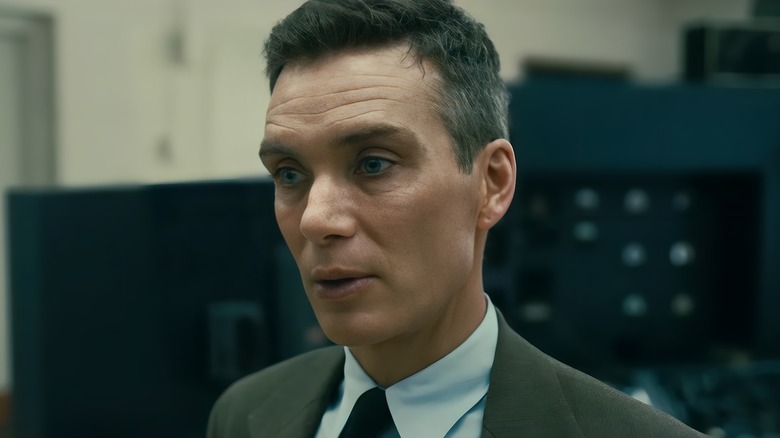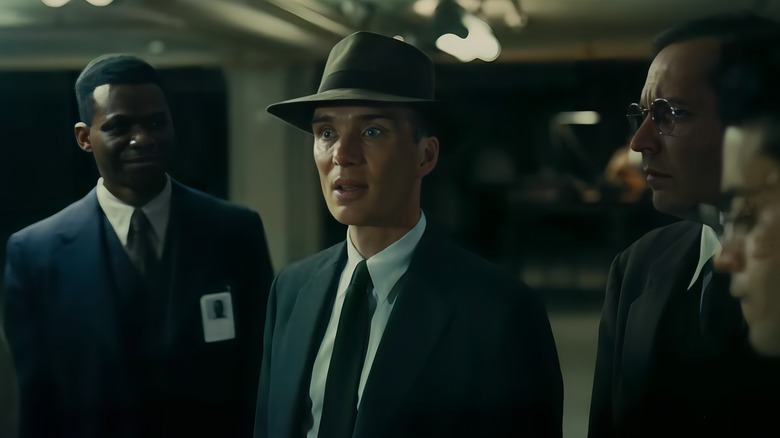Oppenheimer: How Accurate Is The Movie? What The Book Can Tell Us
July 21st saw the release of two films expected to bring waves of moviegoers to theaters: Greta Gerwig's "Barbie," starring Margot Robbie and Ryan Gosling, and Christopher Nolan's biopic "Oppenheimer," with Cillian Murphy playing the iconic physicist who led the effort to build the world's first nuclear bomb during World War II. Films like Nolan's often take great liberties with the truth in the interest of compelling storytelling and box office marketability.
Given the complexity of Oppenheimer's story and the dramatic real-life implications of his work, it would be easy to understand if Nolan strayed far from the hard truth in crafting his film. But to his credit, the director appears to have been relatively faithful to historical events.
"Oppenheimer" is based on the 2005 biography of J. Robert Oppenheimer, "American Prometheus," by Kai Bird and Martin Sherwin. According to Fred Kaplan of Slate — who has written two books on the nuclear age — Oppenheimer's story is important and relevant to modern audiences, who can expect a somewhat accurate representation of the development of the atomic bombs dropped on Hiroshima and Nagasaki, leading to the end of World War II. "I can say that, for the most part and as far as it goes," Kaplan wrote, "the film is a faithful portrait of what really happened—especially, perhaps, in the scenes that some might assume are made-up or exaggerated."
Oppenheimer stops short of being a science lesson
Fred Kaplan points out that "Oppenheimer" is particularly accurate when it comes to depicting verifiable historical events, like the security hearings where the scientist testified and the White House ceremony where Lyndon B. Johnson presented him with the Fermi Award.
"Much of the film is devoted to these hearings," Kaplan wrote. "His interrogators are portrayed as so brazenly hostile, you may wonder if the scenes are accurate—and they are. They're taken, almost verbatim, from the hearing's transcripts, which were published many years ago."
More dramatically represented but still having some basis in truth is the rocky relationship between Oppenheimer and his wife Kitty (Emily Blunt). Kaplan also admits that the film does not show an entirely accurate picture of how the bomb was developed. "The Manhattan Project was a vast team effort, but the film won't show you much of that," he wrote. "Except for Teller, and to some extent Ernest Lawrence [Josh Hartnett] and Isidor Rabi [David Krumholtz], all the other scientists are presented as ciphers in walk-on cameos."
Kaplan also concluded that it would be nearly impossible in this format to be entirely accurate from a scientific standpoint, writing, "Nor will this film teach you much about fission, fusion, or quantum physics, though that may be asking too much of any movie." But most people who head into theaters are not looking for a science or history lesson but primarily to be entertained by the film's three-hour run time. With that in mind, "Oppenheimer" delivers on both fronts, educational and diversionary.

